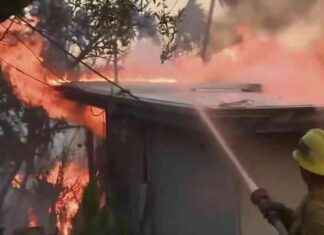The Government concludes that Spanish families are in a solid situation to face the 75 basis point rise in interest rates agreed by the European Central Bank (ECB) this Thursday. The Ministry of Economic Affairs, headed by Nadia Calviño, considers that the household savings rate, which is close to pre-pandemic levels, is essential to face a decision that will surely affect the evolution of the economy.
This mattress that families have amassed represents 7.5% of their disposable income, according to the latest data from the National Institute of Statistics (INE). The Spaniards, in the opinion of sources from the Government’s economic team, are therefore currently going through a solvent period to deal with the rise in the price of money. In Economy they add that households have had in recent months a behavior that they define as very prudent represented, in addition, in the conversion of mortgages from variable to fixed rate (three out of four signed in August is at a fixed rate) and in the level of indebtedness, which is falling and also reaching pre-lockdown levels.
The Government does not give up the possibility of being able to sign an income pact to avoid the feared second-round effects on prices. The Executive, always according to Economy sources, intends to include in it the salary increase of civil servants, a decision that is still being negotiated with the representatives of public workers. Pensions, for their part, will rise with the CPI, confirm the same sources.
There are two concerns for the future that consume the efforts of the Government’s economic area. Inflation and the price of gas, even more so if a total shutdown of Russian gas ends up taking place. As for the rise in prices, the Ministry of Economic Affairs considers that it has already reached a ceiling and that it is moderating. They are realists in Calviño’s team, where they consider that inflation will be a persistent problem in our country for an indefinite period of time.
It is the reality, but in Economy they argue that great part of that inflation is imported. The GDP deflator stood at 3% in the second quarter, which is why they blame the increase in foreign goods, not domestic goods, for the rise in the CPI. One piece of information offered by the Government is that without the three anti-inflation packages approved in recent months, including the fuel discount, the reform of the social bonus or the reduction of the extraordinary benefits of electricity companies, the CPI would have climbed in August to 13.9%, 3.5 points more than the real. The Executive calculates that it has increased the nominal income of the most vulnerable groups by seven points throughout this year.
Ensuring a new interconnection with the rest of Europe is another of the Government’s priorities. Several ministries are involved. Teresa Ribera’s Third Vice Presidency pilots everything, but Moncloa and Economy are also in it. In Economy they define the Council of Energy Ministers of the EU this Friday as transcendental and confirm that Spain will continue fighting for the Midcat with both Germany and France, despite Macron’s refusal. In the Executive they handle the argument that the gas pipeline with France would not be good only for Spain, but also for the countries of Central Europe.
Economy is monitoring the rise in fuel prices, especially diesel, which has been on an upward trend in recent weeks. There is a reason: it is being used as an alternative to gas, explains Economy. The Government rules out reducing this bonus so that it only reaches the lowest incomes because it considers that there are impact measures that should affect all workers, regardless of their economic situation.








